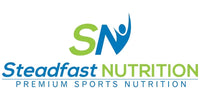
Proper nutrition is indispensable for children and adolescent athletes for growth and development, in addition to allowing better athletic performance.
A balanced diet containing appropriate macronutrients and micronutrients is essential to provide energy, essential nutrients and antioxidants to support growth and activity.
Before puberty, the nutritional and energy requirements of boys and girls are similar. Energy deficit during this phase can lead to delayed puberty, loss of muscle mass, and increased susceptibility for injury, illness.
On the other hand, energy requirements for adolescents depend upon age, activity level, and physical growth rate. Extra calories are needed at the time of growth spurts, to replenish energy expended during sports performance.
Issues of concern
- Lack of proper nutritional knowledge: Inappropriate recommendations of diet and supplements by coaches or misconceptions related to nutrition and diet.
- Inability to lose weight: Aggressive weight loss in overweight adolescents may be associated with decreased strength, endurance, performance, eating disorders and health risks.
- Inability to gain mass: Inadequate protein consumption in the diet leads to no net gain in muscular mass.
- Muscle cramps: Inadequate fluid intake or lack of sodium and other electrolytes leads to muscle cramps and fatigue.
Nutritional suggestions:-
- A diet should consist of approximately 45% to 65% carbohydrates, 10-30% protein and 25-35% fat.
- Timing of food consumption is also vital, such as having simple carbohydrate drinks or food before the sports event or having protein-carbohydrate snacks or beverages within 30 minutes after the event for optimum recovery of muscles and glycogen stores.
- Major meals should be eaten 3 hours before exercise and simple to digest snacks or beverages should be taken 1 hour before activity.
- Primary energy source – Eat whole complex carbohydrates in each meal e.g. potatoes, pasta, rice, whole-wheat bread, fruits, granola bars.
- Building blocks of the body – It is important to even out the intake throughout the meals. For instance, if 120gm of protein is required, then have 30 g each at four meals.
- Animal protein sources are eggs, chicken, fish, meat, milk, yoghurt and cottage cheese along with vegetarian sources are legumes like soybeans, germinated pulses, and nuts. Post sports activity adolescents can take whey protein supplements as well, being convenient to use to maintain muscles and energy.
- Moderate intake of fat is needed to minimise GI upset, get omega-3 fatty acids which are essential to provide immunity and overall health. Example fatty fish, flaxseeds, walnuts, virgin olive oil and avocados.
- Adequate timely fluid intake for maintaining hydration levels before, during and after a game. Every hour during play 1/2 to 1 litre of fluid intake is a must. Suggested electrolyte drinks are lemon water with salt, such as Steadfast Nutrition Snergy helps replenish sweat losses and helps avoid muscle cramps.
To summarise, adequate nutrition is a critical component for a young athlete’s growth, development, health and sports performance.
Reference
Cotugna, Nancy & Vickery, Connie & McBee, Sheldon. (2005). Sports Nutrition for Young Athletes. The Journal of School Nursing. 21. 323-328. 10.1177/10598405050210060401.
LK Purcell, Canadian Paediatric Society, Paediatric Sports and Exercise Medicine Section, Sport nutrition for young athletes, Paediatrics & Child Health, Volume 18, Issue 4, April 2013, Pages 200–202
Sports nutrition for young athletes.www.PediatricSuperSite.com






